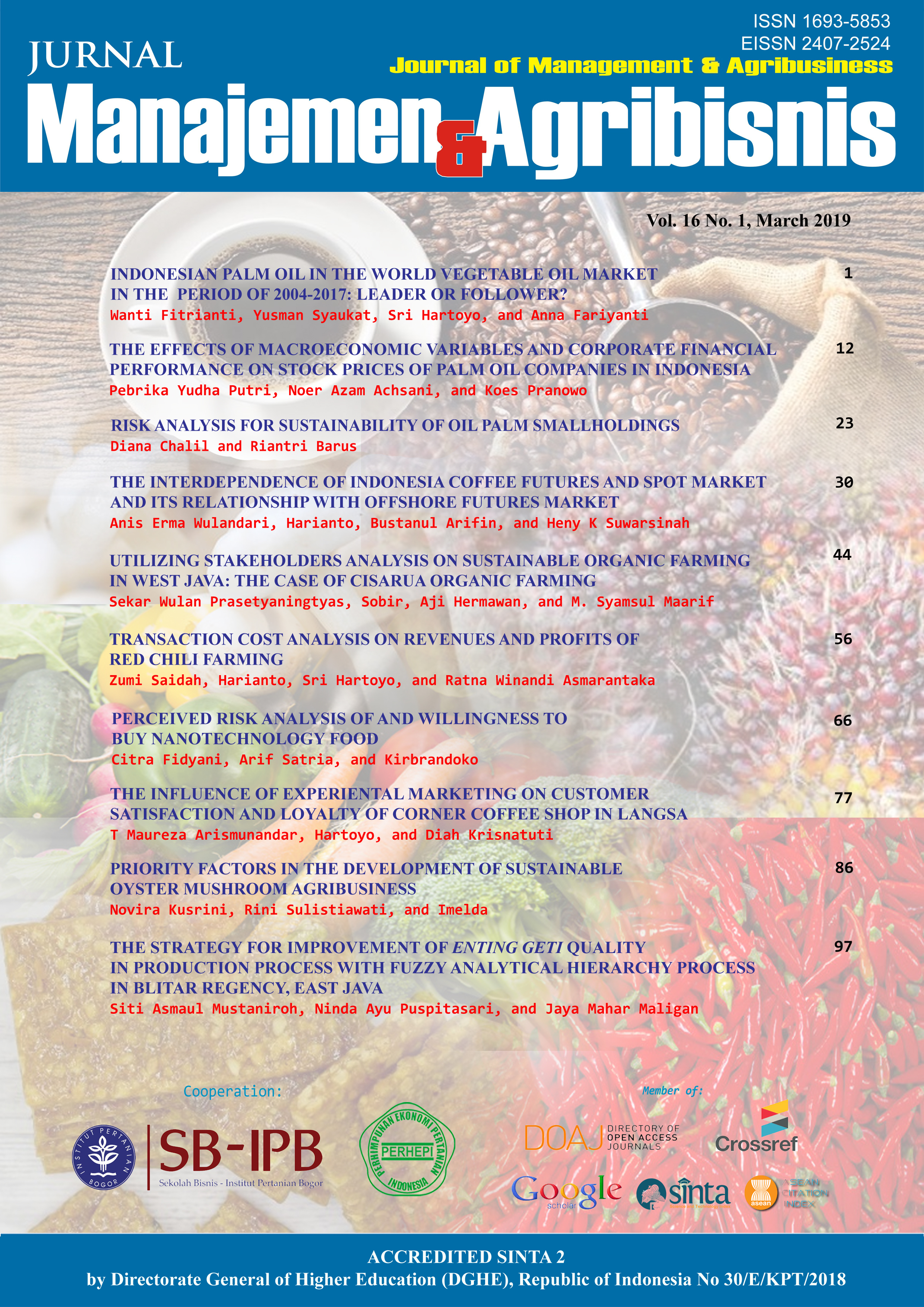Priority Factors in The Development of Sustainable Oyster Mushroom Agribusiness
Abstract
Determining factors in the development of sustainable oyster mushroom agribusiness is an important issue presently considering oyster mushrooms have good opportunities and potential. This research aims to identify prioritizing factors in the development of sustainable oyster mushroom agribusiness in Kubu Raya Regency West Kalimantan Province. This research uses the descriptive method. Respondents were 30 key informants from related agencies (Agriculture Office of Food Crops and Horticulture, agricultural extension workers, researchers in horticulture, oyster mushroom entrepreneurs, and oyster mushroom traders). The research was conducted from March to June 2018. Data were analyzed by the Analytical Hierarchy Process (AHP) analysis. The result indicates that supporting facilities aspect is the most important criterion to be considered. The main sub-criteria are oil palm empty fruit bunches (OPEFB) potential (ecology), return on investment (financial), perception and attitudes of the community in consuming oyster mushrooms (socio-culture), capital (institution), labor availability (human resources), adoption readiness (technology), and market (supporting facilities). The main sub-sub criterion is market demand.
Authors
KusriniN., SulistiawatiR., & ImeldaI. (2019). Priority Factors in The Development of Sustainable Oyster Mushroom Agribusiness. Jurnal Manajemen Dan Agribisnis, 16(1), 86. https://doi.org/10.17358/jma.16.1.86
Authors who publish with this journal agree to the following terms:
- Authors retain copyright and grant the journal right of first publication with the work simultaneously licensed under a Creative Commons Attribution License that allows others to share the work with an acknowledgement of the work's authorship and initial publication in this journal.
- Authors are able to enter into separate, additional contractual arrangements for the non-exclusive distribution of the journal's published version of the work (e.g., post it to an institutional repository or publish it in a book), with an acknowledgement of its initial publication in this journal.
- Authors are permitted and encouraged to post their work online (e.g., in institutional repositories or on their website) prior to and during the submission process, as it can lead to productive exchanges, as well as earlier and greater citation of published work (See The Effect of Open Access).

